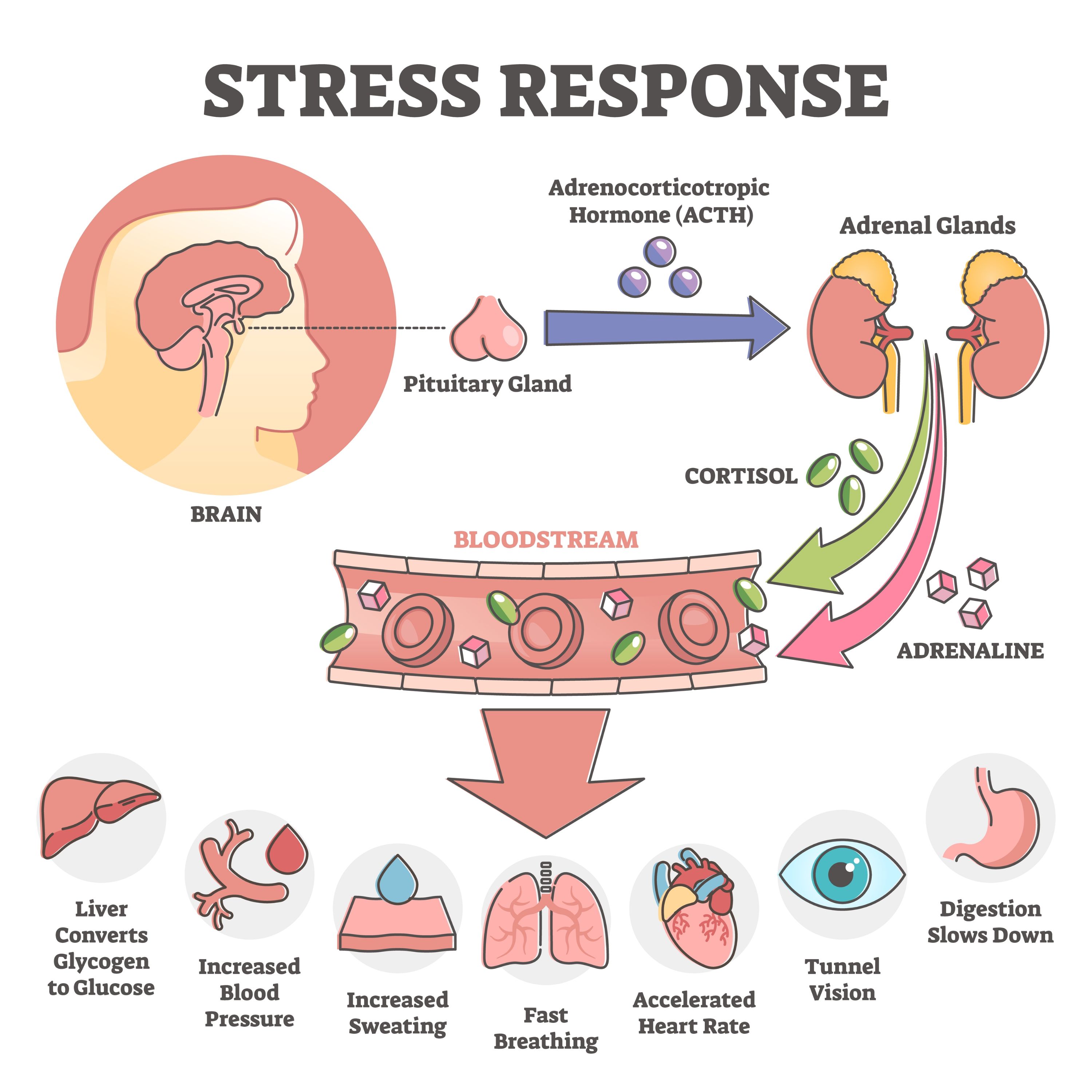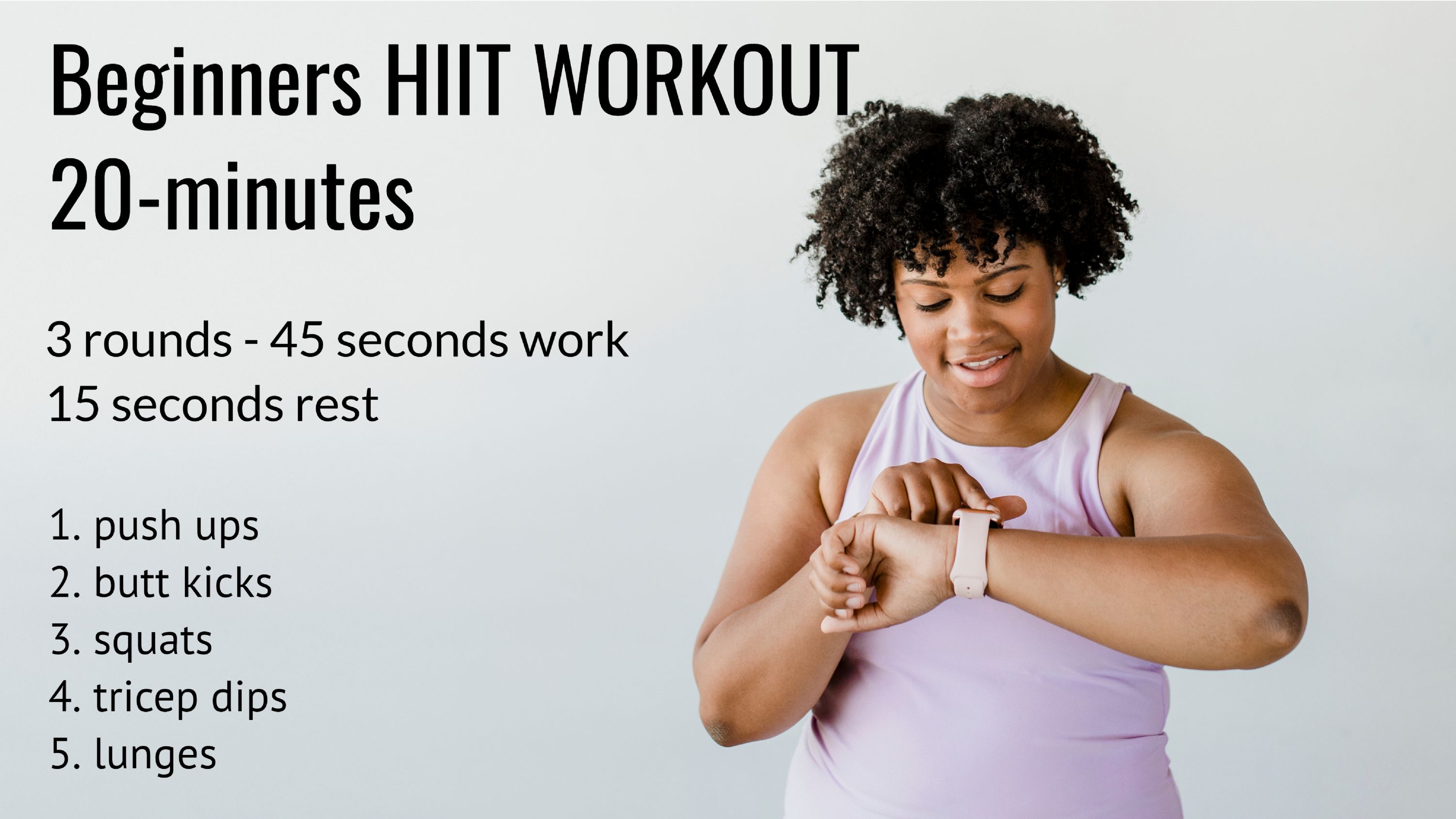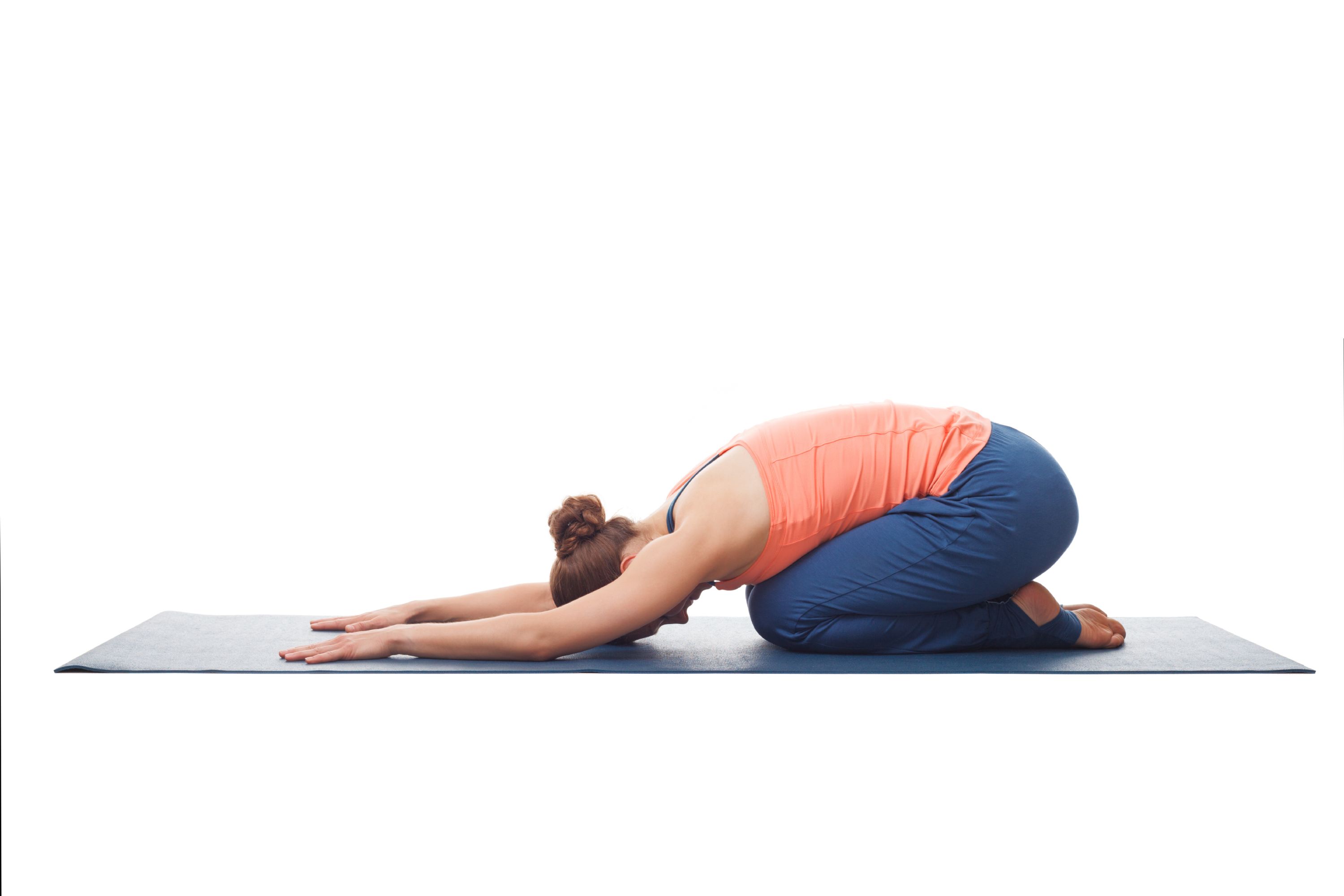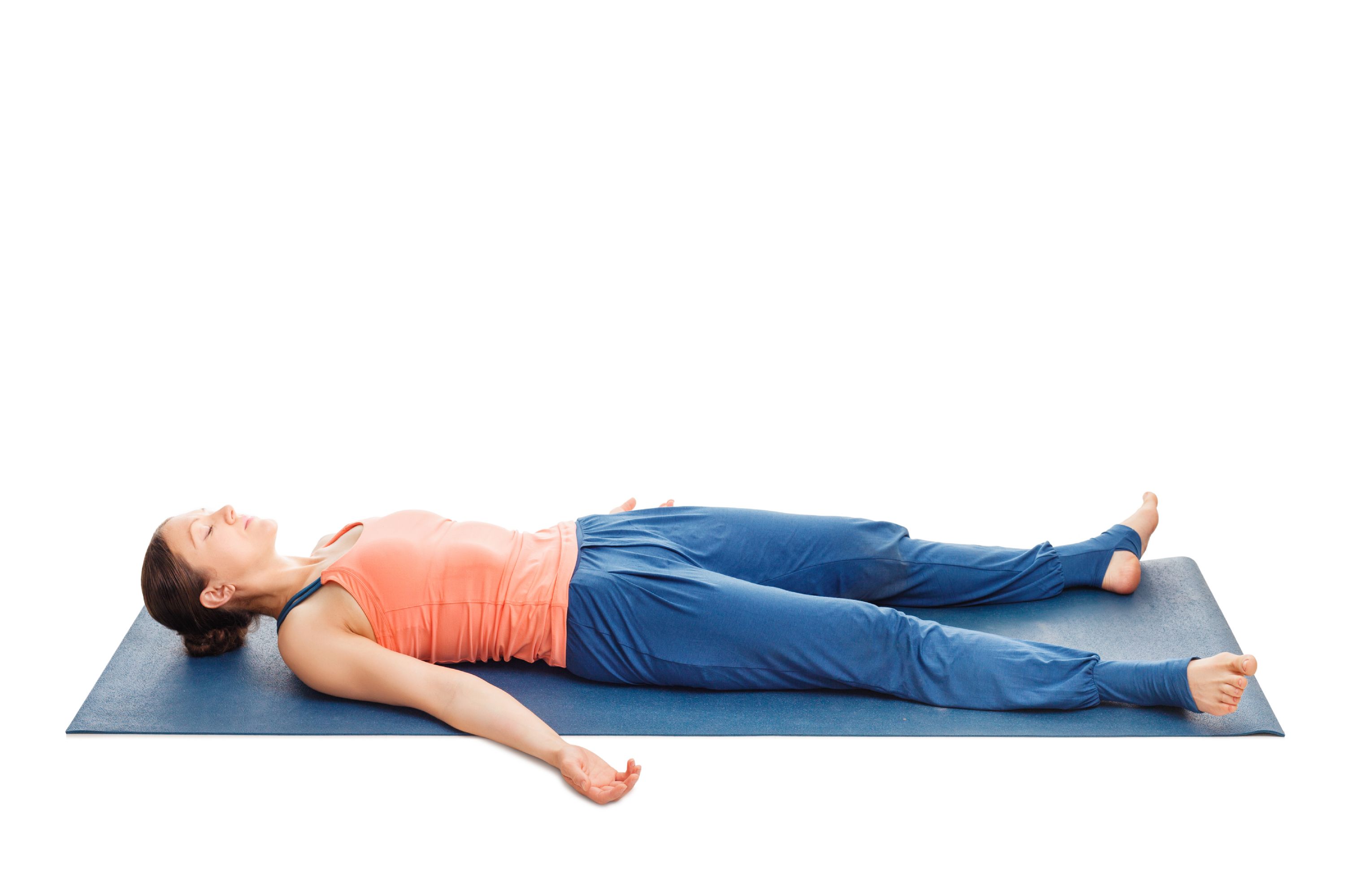
Thanks to the pressure of work, home and family, not to mention money worries, major upheavals such as divorce, moving house, bereavement, unemployment and a seemingly never-ending stream of anxiety-inducing news headlines, it’s no wonder many people are finding it difficult to cope with stress.
Indeed, it’s an escalating problem. According to a survey carried out by the Mental Health Foundation (i), 74 per cent of adults in the UK say they felt overwhelmed or unable to cope at some point in the past year. The same survey found more women than men felt this way (81 per cent compared to 67 per cent), and young people were more affected than those who are older (83 per cent of 18-24-year-olds compared to 65 per cent of the over 55s). The COVID-19 pandemic has had an effect on our mental health too, with studies suggesting that our stress levels (as well as depression and anxiety levels) became significantly higher than normal when social distancing measures were introduced (ii).

What is stress?
The Mental Health Foundation defines stress as the body’s response to pressures from a situation or life event (iii). Yet some degree of stress can be good for you, and helps you feel more alert and perform better. It’s only when the level of stress you’re experiencing is excessive or prolonged that it becomes a problem, since that’s when it can have serious health implications.
Stress is thought to be linked with mental health problems because prolonged exposure to stress hormones may damage and kill some of your brain cells (iv). There’s plenty of evidence linking stress with heart attack and stroke, and experts also claim too much stress can cause a loss of bone density, which can lead to osteoporosis (brittle bones) (v). Being under too much stress on too regular a basis may cause a variety of other health problems including chronic fatigue, digestive upsets, headaches, back pain, high blood pressure, acne, arthritis, asthma and constant colds and infections.
Fight or flight?
Here’s what happens. When faced with a stressful situation, your brain immediately assumes you're in danger and your adrenal glands – found at the top of each of your kidneys – release a cocktail of hormones that trigger what’s known as the fight or flight response. These hormones race through your bloodstream, making your breathing and heart rate faster, and increasing your blood pressure. When the stressful situation passes, your hormone levels usually return to normal. But if you are under constant pressure both at home and at work, your stress response may be activated too regularly, and your hormone levels may remain elevated. When that happens, it can put your health at risk.

How to spot stress
Everybody copes with stress in different ways. Some people seem to thrive on it, while others buckle under what may seem like the slightest bit of pressure. But one of the problems with stress is you may not always realise it’s becoming a problem.
There are lots of warning signs that can indicate you’re not coping with stress as well as you think. Some of the main physical signs include the following:
-
A tendency to sweat more than normal
-
Smoking and/or drinking more than normal
-
Eating too many unhealthy foods or having no appetite
-
Feeling constantly tired or restless
-
Having a nervous twitch
-
Experiencing frequent headaches
-
Not being able to sleep well
-
Feeling sick or dizzy
-
Having digestive problems such as indigestion, heartburn, constipation or diarrhoea
There are many emotional indicators of stress too – some of which may be easier to spot than others – which include the following:
-
Feeling more irritable than normal
-
Worrying constantly about things
-
Feeling like bursting into tears all the time
-
Finding it difficult to concentrate or make decisions
-
Losing your sense of humour
-
Feeling the need to avoid difficult or stressful situations
-
Feeling you have no interest in other people or life in general
-
Denying you have a problem with stress

Should you see your GP?
According to a survey by mental health charity Mind, mental health problems such as stress, anxiety and depression are behind 40 per cent of all visits to a GP (v). So, should you see your doctor if you’re experiencing any of the above signs of stress?
One good reason to see your GP is that stress can cause other health problems, such as high blood pressure. Your GP may also be able to give you advice on self-help coping techniques, or they may recommend counselling.
Self-help for stress
Living in the 21st century means it’s impossible to eliminate stress from your life altogether. There are, however, many ways of tackling it more effectively and keeping it more manageable. Here are some you can try yourself:
Eat and drink healthily
It goes without saying that eating healthily means your body may cope with stress more effectively. A balanced diet will provide your body with the nutrients it needs to manage the effects of stress. Avoiding junk foods and foods high in sugar may also help, as will eating at regular meal times to avoid a drop in your blood sugar levels. Also try to drink less coffee, at least later in the day, since caffeine may increase your stress level hormones – which isn’t useful when it’s time for sleep.

Get plenty of rest
A good night’s sleep is also essential if you’re experiencing more stress than usual. Try to go to bed at around the same time every night and get up around the same time every morning, and aim for eight hours a night (or more if you’re really under pressure). Take some time to wind down before going to bed, especially if you’ve been watching TV or using your laptop, tablet or smartphone in the evening. And turn your bedroom into a haven of sleep by making it as dark and quiet as possible (turn off your TV, radio, smartphone and other digital devices and wear an eye mask and ear plugs if you have to).
Learn how to say ‘no’
This may be easier said than done, whether at work or at home, but don't take on more responsibilities when you're already pushed to the max. Start by learning to say 'no' just once a week – accept that you don't have to please everybody all of the time, and it could help make you feel much calmer. If you’re still not coping as well as you should, try asking someone if they could help. For instance, ask a work colleague to take on some of your tasks or ask members of your family to help with things around the house.
Take more time off
UK employees work some of the longest hours in Europe, working the equivalent of an extra two and a half weeks a year compared with the EU average (vii). But that’s hardly something to be proud of. Not having enough down time can contribute significantly to your stress levels, so avoid working late or working at weekends on a regular basis, and always try to use up all of your holiday entitlement each year. A change of scenery can do you the world of good, so get away whenever possible, even if it’s only for an afternoon every now and then.

Avoid using crutches
When you’re under too much pressure, it’s easy to be tempted to have an extra drink or two, to smoke or drink far too much coffee. But in the long term, none of these things will help. That’s because caffeine and nicotine are stimulants, and when you have too much of them it can increase your body's stress response and may even cause anxiety. Alcohol, on the other hand, is a depressant.
Talk about it
Talking about something that’s worrying you can help you to see things differently and to stop the situation getting out of proportion. Think about a friend, work colleague or a family member you could have a chat with who might help you see things from a different and less stressful.

Exercise for less stress
If you want to have lower stress levels there is plenty of evidence to suggest that being active will really help (viii). This is because being physically active can help to reduce the stress hormones in your body and reduce your blood pressure, while boosting your levels of mood-enhancing hormones called endorphins, which help you cope with stress more effectively. Exercise can also help you sleep better – which is something you need when you’re under pressure – and reduce symptoms of mild depression and anxiety. Another way in which exercise helps is it can make you forget about what’s worrying you, even if only for a short while. As you concentrate on moving physically, your mind is cleared of all that tension, and afterwards you should feel more refreshed.
What should you do?
One way to get even more benefit from exercising is to go outdoors into the fresh air, especially a park or any type of green space. Even if you only have 10 minutes to spare, a brisk walk outside can help to boost your mood.
Take it easy
Remember, however, to take things slow at first, especially if you’re new to exercise or if you haven’t been very active lately. If you rush into too vigorous an exercise regime, you could end up overdoing it or even injuring yourself, either of which could put you off sticking with being active. So build up gradually to a minimum of 150 minutes of moderate-intensity activity a week.
Increase the intensity
If, however, you’re already used to exercising, your overall health is good and you have a decent level of fitness, an intense exercise session can help if you’re feeling really stressed out, as it may help to release lots of tension from your body. Try a high-intensity interval training (HIIT) method: warm up on an exercise bike, then sprint for 20 seconds, have 10 seconds of rest, and repeat the sequence 10 times. You should find the last few rounds of sprinting particularly difficult, but after just five minutes you’ll feel like a new person.

Stretch it out
Stretching exercises – including yoga and Pilates – are also useful for releasing body tension. A yoga exercise called child’s pose is ideal for stretching out your back and neck and for calming your mind: kneel on the floor so that you’re sitting on your heels, then lean forward with your arms stretched out in front of you until your forehead rests on the floor in front of your knees. Press your palms down into the floor and push your hips back and down towards your feet. Sit quietly and comfortably in the pose for as long as you like, but remember to sit back up slowly.

Take deep breaths
If you often feel stressed before going to a meeting or an important social event – a wedding, for instance – try to take a few moments beforehand to relax. Do some deep breathing exercises – inhale for a slow count of four and exhale for a count of six – to help reduce the production of stress hormones in your body.

If you have more space and more time, try lying on your back with your knees bent, your arms by your sides, your weight sinking into the floor. Then take a breath in through your nose, feeling your upper chest rising slightly and then your stomach. Exhale and feel your stomach and chest slowly lowering. Repeat for a few minutes or until you feel calm and relaxed.
Natural remedies for stress
Aromatherapy oils have been used for many years to help people unwind: lavender oil, for instance, is said to help with relaxation and anxiety relief; or you could try a blend of relaxing oils such as lavender, geranium and clary sage.
Meanwhile, several nutritional supplements may help counteract the effects of stress, including the following:
High-strength multivitamin and mineral
If you’re going through a stressful time for one reason or another, chances are you may not be eating as healthily as usual. So it may be a good idea to take a multivitamin and mineral supplement to make sure your body is getting the nutrients it needs. Such a supplement should include good levels of the B vitamins to support your nervous system as well as zinc, levels of which are depleted when you’re under stress. Studies also suggest these supplements may be useful for stress, including one that showed people taking a multivitamin and mineral experience less anxiety and cope with stressful situations more effectively (ix).
Magnesium
Many experts believe your body’s level of magnesium may be also lowered when you’re under a lot of stress, with larger-than-normal levels excreted in urine (x). There’s also some evidence to suggest taking magnesium may help you sleep better if stress is keeping you awake at night (xi).
Valerian
This herb may also be useful in cases where stress causes insomnia, for which it has a long history of use (it has been recommended for insomnia since as far back as the second century AD). Some evidence suggests valerian, when taken an hour before bedtime, may be effective at tackling insomnia if taken for 28 days or more (xii). A review of 16 studies also concludes that valerian might improve sleep quality without producing side effects (xiii).
Siberian ginseng
Often described as an adaptogen, Siberian Ginseng (Elutherococcus Senticosus) is thought to help the body to adapt to various types of stress, with some experts believing it supports the adrenal glands, which produce the stress hormone cortisol.
Ashwagandha
This traditional Ayurvedic herb is often used to help relieve the effects of stress. Scientists have also found it may help reduce levels of cortisol, a stress hormone (xvii). If stress is making it hard for you to get a good night’s sleep, studies also suggest ashwagandha may significantly improve your sleep quality (xviii).
Rhodiola
Used traditionally in Europe for stress release, rhodiola is a herb whose roots contain a number of active ingredients such as rosavin and salidroside. Researchers have found it may help reduce anxiety and stress more effectively than a placebo (xix).
Theanine & Lemon Balm
Found almost exclusively in green, black, oolong and pekoe tea – though you can also find it in nutritional supplements – theanine is a non-protein amino acid. It’s thought to make you feel calmer by helping your brain produce alpha waves. And while some conventional medicines that help you relax can also make you feel sleepy, studies suggest theanine supplements can calm you down but still keep you feeling awake and alert (xx). Researchers have discovered theanine may help you feel calm when faced with a stressful situation because it slows down your heart rate (xxi).
Herbal therapists often recommend tea made with the herb lemon balm (Melissa officinalis) to help with relaxation. Indeed, there’s some evidence it could help reduce anxiety levels (xxii), though existing studies aren’t really ideal as they only include a small number of volunteers. Nevertheless, drinking a soothing cup of lemon balm tea is a pleasant way to relax – though you can, of course, take lemon balm in supplement form too.
Try our combination product Theanine and Lemon Balm Complex for a convenient way to take both nutrients.
Being in a constant state of stress can place strain on your health, so do try some of the tips above to alleviate the symptoms. Also, you could try and mitigate your stress by addressing some of the causes. If you continue to be worried about your symptoms, make an appointment with your GP who may be able to refer you for counselling. In the meantime, you can find more information on common health issues and how to help them in our health library.
References:
-
Available online: https://www.mentalhealth.org.uk/news/stressed-nation-74-uk-overwhelmed-or-unable-cope-some-point-past-year
-
Jia R. et al., Mental health in the UK during the COVID-19 pandemic: cross-sectional analyses from a community cohort study. BMJ Open 2011 Aug;10(9). Available online: https://bmjopen.bmj.com/content/10/9/e040620)
-
Available online: https://www.mentalhealth.org.uk/a-to-z/s/stress
-
Available online: https://www.tuw.edu/health/how-stress-affects-the-brain/
-
Kelly RR. et al., Impacts of Psychological Stress on Osteoporosis: Clinical Implications and Treatment Interactions. Front Psychiatry. 2019;10:200. Available online: https://www.ncbi.nlm.nih.gov/pmc/articles/PMC6465575/
-
Available online: https://www.mind.org.uk/news-campaigns/news/40-per-cent-of-all-gp-appointments-about-mental-health/
-
Available online: https://www.tuc.org.uk/news/british-workers-putting-longest-hours-eu-tuc-analysis-finds
-
Available online: https://adaa.org/understanding-anxiety/related-illnesses/other-related-conditions/stress/physical-activity-reduces-st
-
Available online: https://www.nhs.uk/news/lifestyle-and-exercise/physical-activity-reduces-stress/
-
Schlebusch. L, Bosch. BA, Polglase. G, et al. A double-blind, placebo-controlled, double-centre study of the effects of an oral multivitamin-mineral combination on stress. S Afr Med J. 2000;90:1216-1223.
-
Grases. G, Perez-Castello. JA, et al. Anxiety and stress among science students. Study of calcium and magnesium alterations. Magnes Res. 2006 Jun:19(2):102-6. Available online: http://www.eurostaga.com/pdf_estudios/tm/Mg_estres.pdf
-
Held. K, Antonijevic. IA, Kunzel. H, et al. Oral MG(2+) supplementation reverses age-related neuroendocrine and sleep EEG changes in humans. Pharmacopsychiatry. 2002;35:135-143.
-
Vorbach. EU, Gortelmeyer. R, Bruning. J. Therapy for insomniacs: effectiveness and tolerance of valerian preparations [translated from German]. Psychopharmakotherapie. 1996;3:109-115.
-
Bent S. et al., Valerian for sleep: a systematic review and meta-analysis. Am J Med. 2006 Dec;119(12):1005-12. Available online: https://www.ncbi.nlm.nih.gov/pubmed/17145239
-
Sarris J. Herbal medicines in the treatment of psychiatric disorders: 10-year updated review. Phytother Res. 2018 Jul;32(7):1147-1162. Available online: https://www.ncbi.nlm.nih.gov/pubmed/29575228
-
Chandrasekhar. K, Kapoor J, Anishetty S. A prospective, randomized double-blind, placebo-controlled study of safety and efficacy of a high-concentration full-spectrum extract of ashwagandha root in reducing stress and anxiety in adults. Indian J Psychol Med. 2012 Jul;34(3):255-62.Available online: https://www.ncbi.nlm.nih.gov/pmc/articles/PMC3573577/
-
Salve J. et al., Adaptogenic and Anxiolytic Effects of Ashwagandha Root Extract in Healthy Adults: A Double-blind, Randomized, Placebo-controlled Clinical Study. Cureus. 2019 Dec;11(12): e6466. Available online: https://www.ncbi.nlm.nih.gov/pmc/articles/PMC6979308/
-
Cropley M. et al., The Effects of Rhodiola rosea L.Extract on Anxiety, Stress, Cognition and Other Mood Symptoms. Phytother Res. 2015 Dec;1934-9. Available online: https://www.ncbi.nlm.nih.gov/pubmed/26502953
-
Turkozu D. et al., L-theanine, unique amino acid of tea, and its metabolism, health effects, and safety. Crit Rev Food Sci Nutr. 2017 May 24;57(8):1681-1687. Available online: https://www.ncbi.nlm.nih.gov/pubmed/26192072
-
Kennedy DO. et al., Modulation of mood and cognitive performance following acute administration of single doses of Melissa officinalis (lemon balm) with human CNS nicotinic and muscarinic receptor-binding properties. Neuropsychopharmacology. 2003. Available online: https://www.nature.com/articles/1300230 Kennedy. DO, Little. W, Scholey. AB. Attenuation of laboratory-induced stress in humans after acute administration of Melissa officinalis (lemon balm). Ophthalmology. 2003.Available online: https://europepmc.org/article/med/15272110
Related Posts
Disclaimer: The information presented by Nature's Best is for informational purposes only. It is based on scientific studies (human, animal, or in vitro), clinical experience, or traditional usage as cited in each article. The results reported may not necessarily occur in all individuals. Self-treatment is not recommended for life-threatening conditions that require medical treatment under a doctor's care. For many of the conditions discussed, treatment with prescription or over the counter medication is also available. Consult your doctor, practitioner, and/or pharmacist for any health problem and before using any supplements or before making any changes in prescribed medications.

Christine
Christine Morgan has been a freelance health and wellbeing journalist for almost 20 years, having written for numerous publications including the Daily Mirror, S Magazine, Top Sante, Healthy, Woman & Home, Zest, Allergy, Healthy Times and Pregnancy & Birth; she has also edited several titles such as Women’ Health, Shine’s Real Health & Beauty and All About Health.
View More



